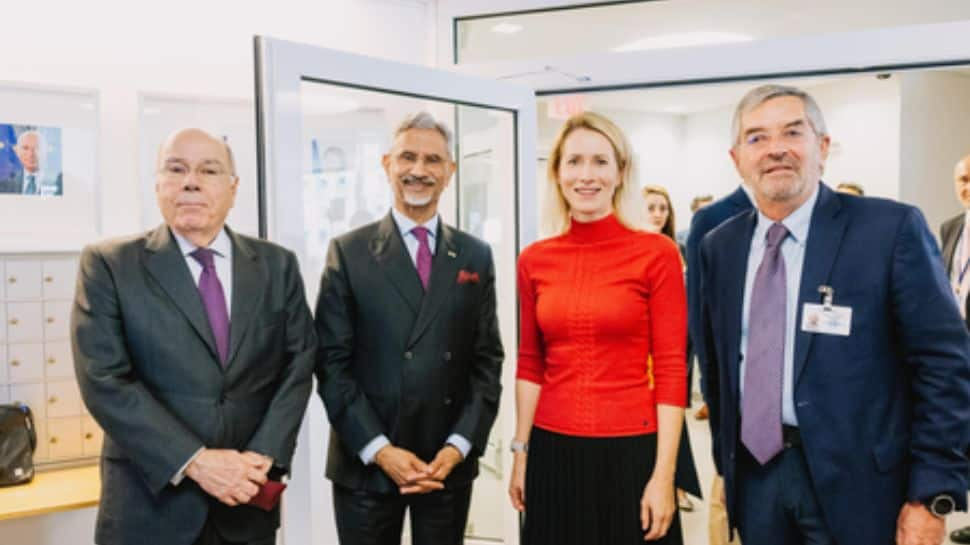
UNITED NATIONS, September 22 (IPS) – The World Health Organization (WHO) is urging global efforts to address and invest in tackling non-communicable diseases, and that by doing so, can yield economic benefits of up to USD 1 trillion by 2030.
Ahead of the upcoming United Nations (UN) General Assembly High-Level Meeting on the prevention of Noncommunicable Diseases (NCDs) on September 25, WHO released their newest report, Saving Lives, Spending Less: The Global Investment Case for Noncommunicable Diseases, during a virtual press conference on September 18. The report highlighted the global state of physical and mental health, calling for cost-effective interventions to reduce preventable deaths, accelerate progress toward the Sustainable Development Goals (SDGs), and strengthen health systems worldwide.
According to the report, NCDs—which include cancer, diabetes, and cardiovascular and lung diseases—are the leading causes of death in most countries, claiming over 43 million lives each year, including 18 million premature deaths. WHO further notes that hundreds of millions of people are currently living with at least one NCD, which significantly reduces both quality of life and lifespan.
Despite 82 percent of countries achieving reductions in NCD mortality between 2010 and 2019, the rate of progress has stalled significantly in the 2020s, with many countries recording higher numbers of NCD-related deaths post-pandemic. This is particularly dire for low-and middle-income countries, where the inadequate access to healthcare costs roughly 32 million lives each year. It is projected that over 150 million people could die prematurely from NCDs unless effective global action is taken.
“There is no country on earth that isn’t now, and in the coming years is going to be challenged by the issues of NCDs and mental health,” said Jeremy Farrar, a medical researcher and the Chief Scientist at WHO. “Demographic shifts, multimorbidity—where people have more than one condition—are going to be an issue for health systems all around the world, including for the richest countries in the world.”
WHO Director-General Tedros Adhanom Ghebreyesus noted that over three million people die each year due to unsafe or inequitable access to healthcare. He further highlighted that more than one billion people face mental challenges worldwide, with suicide remaining one of the leading causes of death among young people.
“Noncommunicable diseases and mental health conditions are silent killers, robbing us of lives and innovation,” said Ghebreyesus. “We have the tools to save lives and reduce suffering. Countries like Denmark, South Korea, and Moldova are leading the way, while others are stalling. Investing in the fight against NCDs isn’t just smart economics—it’s an urgent necessity for thriving societies.”
Global exposure to preventable risk factors — such as tobacco and alcohol use, unhealthy diets, excessive consumption of sugary beverages, and physical inactivity — kills more than 10 million people each year and continues to exacerbate health issues worldwide. WHO further attributes the proliferation of NCDs and mental health challenges to demographic shifts such as rapid urbanization, which has left many countries grappling with rising debt, economic pressures, and limited fiscal space—factors that hinder effective investment in sustainable development and healthcare.
“When we talk about NCDs, it is very important to recognize that we are going against very strong financial interests,” said Etienne Krug, WHO Director for health determinants, promotion, and prevention. “There are a whole series of unhealthy products on the market right now, ranging from tobacco, unhealthy foods, alcohol, etcetera. Acting against the interests of some of these powerful companies is not always approached with the same energy from different governments. Unless we do take action to promote healthy products and limit the sale of unhealthy products, we will not make progress in tackling NCDs — and not fast enough.”
WHO estimates that implementing relatively low-cost policies could yield significant returns, accelerating progress toward the SDGs while improving public health. According to the report, if every person invested just USD 3 per year, up to 12 million lives could be saved between 2025 and 2030—equivalent to roughly 150 million healthy life years. Economically, this could generate up to USD 1 trillion in benefits worldwide, representing a four-to-one return on investment. By 2035, these gains are estimated to grow even further, with every dollar invested yielding up to seven dollars in economic benefits.
Numerous low- and middle-income countries have reported significant gains in public health and the economy after implementing policy changes on access to unhealthy substances. In 2018, Brazil went from being the nation with the sixth-cheapest cigarettes in the world to implementing the highest tobacco tax rate in the Americas, leading to significant reductions in nationwide smoking rates.
Numerous low- and middle-income countries have reported significant public health and economic gains after implementing policies to limit access to unhealthy substances. In 2018, Brazil shifted from having the sixth-cheapest cigarettes in the world to imposing the highest tobacco tax rate in the Americas, resulting in a significant nationwide decline in smoking rates, saving hundreds of thousands of lives.
Similarly, the integration of hypertension control services into primary care in Bangladesh, Ethiopia, and the Philippines has allowed millions of people with hypertension to manage their blood pressure. The most notable gains were recorded in the Philippines, where approximately 80 percent of patients have achieved controlled blood pressure since the implementation of these practices.
Despite these global gains, the United States continues to fall short in addressing the rise of NCDs. It is among the most NCD-affected countries in the world, with rates of obesity being particularly pronounced. Despite the U.S. allocating a disproportionately high expenditure for healthcare in comparison to other countries, its approach remains largely ineffective in maximizing public health outcomes. Ghebreyesus stated that investing in policies that promote healthy practices and disease prevention would address the root cause of NCDs, and possibly save millions of lives.
Ghebreyesus also expressed concern during the panel over the U.S.’s planned withdrawal from WHO next year, noting that the country has historically been the organization’s largest contributor and warning of the significant losses in public health that can be expected. According to Ghebreyesus, the new amendment to WHO’s policies includes critical information on global weaknesses that have been identified during the COVID-19 pandemic, which will prove to be crucial in tackling NCDs moving forward.
IPS UN Bureau Report
© Inter Press Service (20250922174925) — All Rights Reserved. Original source: Inter Press Service








